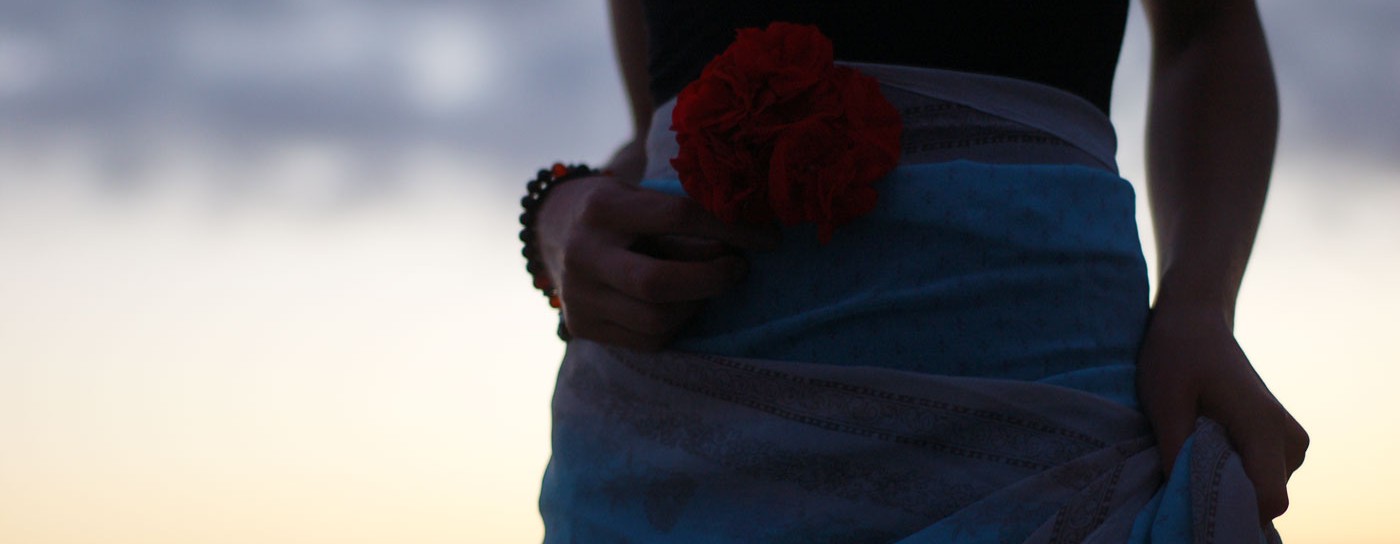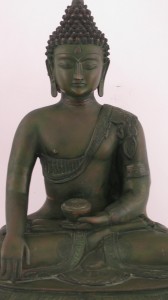
The Way of the Bodhisattva: The Importance of Receiving
 In this time of social, political, environmental, spiritual and global change, we revere the great men and women who have given their lives for the betterment of the world. ?Those who have stood for human rights: Martin Luther King Jr., Gandhi, Nelson Mandela, Mother Teresa, Cesar Chavez, and Desmond Tutu, to name a few. ?Those who model for us total love and total compassion: Jesus, Moses, Mother Mary, Buddha, Brahma, Vishnu, Shiva, Kwan Yin, and Tara. ?Those who reflect the truth of our interconnection: Thich Nhat Hanh, the Dalai Lama, Rumi, Hafiz. ?And all those who go unrecognized, making choices every day to serve a better, more awakened world.
In this time of social, political, environmental, spiritual and global change, we revere the great men and women who have given their lives for the betterment of the world. ?Those who have stood for human rights: Martin Luther King Jr., Gandhi, Nelson Mandela, Mother Teresa, Cesar Chavez, and Desmond Tutu, to name a few. ?Those who model for us total love and total compassion: Jesus, Moses, Mother Mary, Buddha, Brahma, Vishnu, Shiva, Kwan Yin, and Tara. ?Those who reflect the truth of our interconnection: Thich Nhat Hanh, the Dalai Lama, Rumi, Hafiz. ?And all those who go unrecognized, making choices every day to serve a better, more awakened world.
We revere these beings because they share a deep commitment to love, truth, and justice. ?
We look to them as examples because they model the principles of the Bodhisattva.
A Bodhisattva is someone who devotes his or her life to the liberation of all sentient beings from suffering, that they may realize their full potential of enlightenment and total love. ?A Bodhisattva can be an enlightened being, a being whose essence is enlightenment, or a being who is committed to enlightenment.
When we praise Martin Luther King Jr. or the Dalai Lama or Kwan Yin–these Bodhisattva beings–there is often an emphasis on how much they have given. ?We praise them for their profound dedication and service to?others. ?We consider them?selfless.
Gandhi was not selfless. ? Mother Mary was not selfless. ? Rumi was not selfless. ? The Bodhisattva is not selfless. ?Quite the contrary. ?A Bodhisattva is not simply devoted to others but to ALL BEINGS. ?This is a fundamental, often misunderstood, yet subtle difference. ?The bodhisattva’s life is committed?to LOVE–the kind of love that acknowledges our interconnectedness.? ?And a commitment to love and interconnection is neither selfish nor selfless.
Unconditional love sees no separation. ?
 When the Bodhisattva dedicates his or her life to the benefit of all beings, this?includes the self.? We often forget this when we give ourselves completely to some project or service meant to benefit the world, then relapse into our beds, sick or burnt out from giving without receiving. ?Exhausted because in our attempt to realize truth, we were perpetuating a false duality.
When the Bodhisattva dedicates his or her life to the benefit of all beings, this?includes the self.? We often forget this when we give ourselves completely to some project or service meant to benefit the world, then relapse into our beds, sick or burnt out from giving without receiving. ?Exhausted because in our attempt to realize truth, we were perpetuating a false duality.
Selfishness and selflessness are both false. ?They are the same energy on opposite extremes of the pendulum. They both come from a place of separation and illusion.
When we are too focused on the self, we live in separation and illusion. ?And when we focus too much on “others”–even to give to others in some attempt to forget the “self”–we also live in separation and illusion. ?To focus too much on the self?or on others is to live in duality, because love knows there is no “self” AND there are no “others.”
And so the deepest form of self-care and nourishment is an essential part to the path of the Bodhisattva: truly receiving love for the benefit of all beings, including and beginning with the one where change, transformation, and total acceptance begins.
To give love–the Bodhisattva’s mission–includes this entity we call the self, and this is called receiving. ?This is called living and embodying the service we give to all beings, with?no exception.
And so the deepest form of self-care and nourishment is an essential part to the path of the Bodhisattva: truly receiving love for the benefit of all beings, including and beginning with the one where change, transformation, and total acceptance begins.
To give to oneself–to?receive–is imperative to the practice of the Bodhisattva. ?Through our own body, we experience the entirety of existence. Through giving to ourselves, we give to all.
And so to love the “self” is to love all. ?Through one life, devotion to all beings is lived.
Self-Marriage, at its essence, is a Bodhisattva practice: we vow to live our full potential and awakening, for the sake of all beings–including ourselves. ?We commit to total love, and we practice it for the benefit of all–beginning right here with this being, this mind, these eyes, these hands, and this heart.
 Self Marriage Ceremonies
Self Marriage Ceremonies